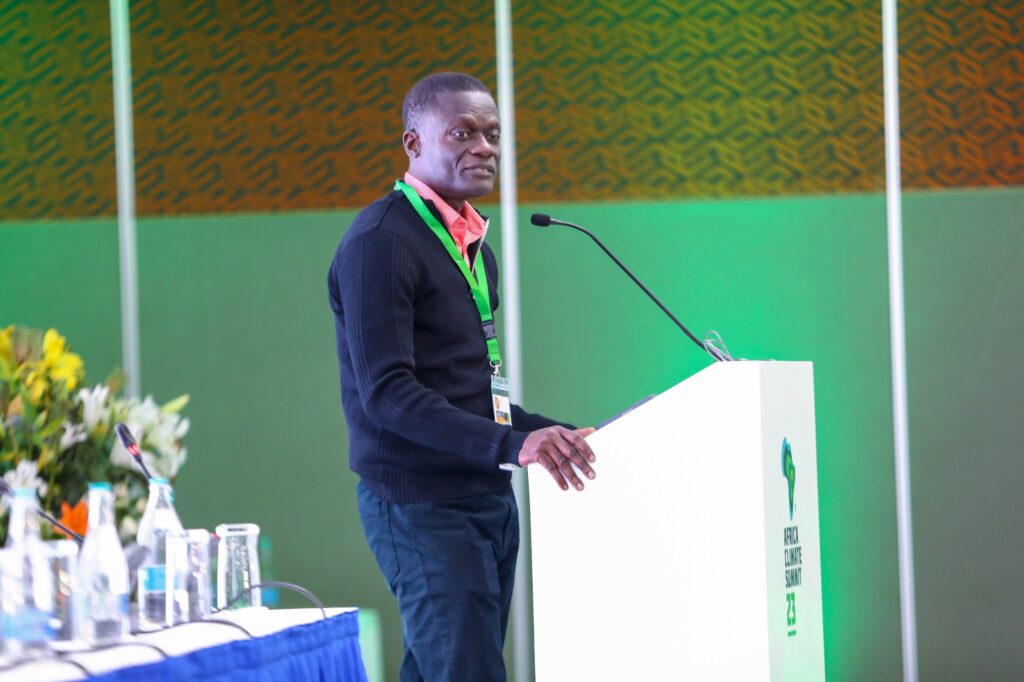Raising the bar for African prosperity, inclusive growth and a liveable planet for us all
By Climate Champions | September 8, 2023
‘It is time to break out of the shackles of low ambition.“ Those were the words of Kenya’s President William Ruto, galvanising action at the beginning of the Africa Climate Summit and Africa Climate Week.
The Summit concluded with billions pledged and a Declaration signed by 19 Heads of State which included calls to reform the multilateral financial system; for a global carbon taxation regime, and for the establishment of a new financing architecture under the umbrella of a new Global Climate Finance Charter.
In addition, the Declaration acknowledged the critical importance of reversing biodiversity loss and ensuring the sustainable development of the continent. It highlighted Africa’s abundant natural capital notably its vast carbons sinks in the Congo forest and peatlands and its savanna grasslands, mangroves, swamps, coral reefs and marine reserves. It also called for the integration of climate, biodiversity and ocean agendas to support nature-based ocean solutions for climate, livelihoods and sustainability.
In response, H.E Razan Al Mubarak, UN Climate Change High-Level Champion for COP28 said: “This is a great moment in time for the nature and climate change agendas to demonstrate how they reinforce each other. But ideas without finance are merely hallucinations. We need to ensure that our nature-based solutions are integrated with robust financial plans.”
During Africa Climate Week, the High-Level Champions convened a number of discussions responding to Africa’s climate priorities on energy access, exploring the potential of green hydrogen, food systems and regenerative agriculture, credit enhancement and project origination in Africa in line with the Climate Champions regional finance forums and resilience solutions at both local and national level.
The Climate Champions also kicked off a series of regional dialogues on nature – based solutions, just energy transition cooperation and building resilience in cities.
Dr. Mahmoud Mohieldin, UN Climate Change High-Level Champion for COP27 welcomed the billions pledged but cautioned they were still insufficient to close the $2.8 trillion gap required for Africa to meet its emissions targets set by the Paris climate agreement. He further underlined the necessity to support climate finance and investment vehicles such as the Green Climate Fund (GCF) and the Adaptation Fund, which have ongoing projects within the continent worth billions of dollars.
He said “ With debt levels and borrowing costs soaring, climate action must be funded through more equity investments, grants and concessional financing. The sooner leaders of advanced economies and international organisations understand what Africa needs to achieve a just energy transition and provide the required financing and technology transfers, the greater the chance that the world will reach net-zero emissions by 2050. A strong replenishment of the GCF is one avenue to reaffirm the developed countries’ commitment towards global climate action and economic development of the most vulnerable communites. It’s no longer about centralization versus decentralisation. It needs to be a collaborative and inclusive model between public and private entities .”
The announcement by Ms. Al Mubarak of $100 million to accelerate the implementation of The Great Blue Wall Initiative exemplified this approach. The African-born and led Great Blue Wall Initiative, brings together Heads of State, governments, local communities, civil society and the private sector behind a common ocean regeneration agenda to benefit at least 70 million people.
Similarly acknowledging that the African economy has been losing $7-15 billion every year since 2020 due to climate change, Dr. Mohieldin underscored the need to share ideas and collaborate on increasing climate finance to the continent during the African Development Bank’s launch of the African Financial Alliance on Climate Change (AFAC) in partnership with GFANZ Africa.
As the Global Stocktake synthesis report will make clear, governments, businesses, investors, cities and regions must act rapidly to implement their commitments to halve emissions, build resilience, and end nature loss by 2030.
Yet conversations held at Africa Climate Week proved that impactful action to advance the climate agenda is well underway across the continent.
What success looks like

Emmanuel Egyei-Mensah, the CEO Arch Holdings, speaking at the session on Just Energy Collaboration
These included the Mayor of the Mozambique city of Quelimane, Manuel de Araujo highlighting how climate resilience projects protected his community from the worst impacts of Hurricane Freddie and Emmanuel Egyei-Mensah, the CEO of clean cooking venture Arch Holdings Ltd relaying how replacing wood fuels for cooking with liquefied petroleum gas (LPG) is providing both economic and environmental benefits.
Similarly, Africa-based electric motorbike company Ampersand – one of the projects featured in the UN Compendium of projects, announced $13 million of investment to expand its fleet. This is proof that investment opportunities exist across the continent and with sufficient financing, communities will be able to adapt to climate impacts, mitigate emissions and support sustainable development.
Speaking at the close of Africa Climate Week, Bogolo Kenewendo, UN Climate Change Special Advisor and Africa Director said: “There is a positive evolution of the Africa narrative in relation to climate change, the challenges and opportunities. There is also a general agreement that climate action should be an imperative of sustainable development; therefore there should be increased financial support and investment to enable the continent’s development in a green pathway and just transition. African leadership is ambitious across all stakeholders, this is very encouraging for our common 1.5 degree future.”


